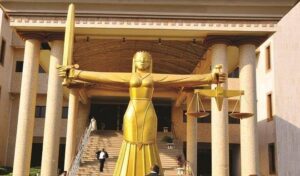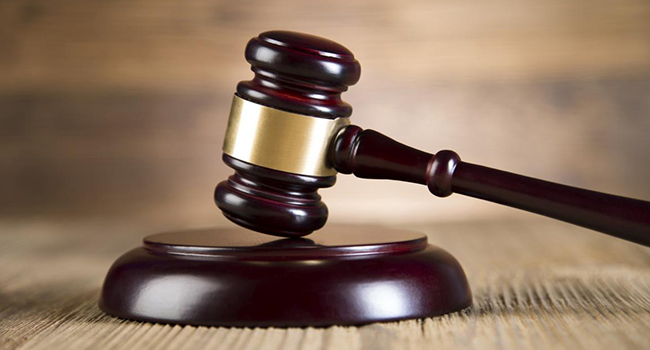On Tuesday, the Court of Appeal sitting in Akure, the capital of Ondo State, delivered a significant ruling that reinstated Hon. Iroju Ogundeji as the Deputy Speaker of the Ondo State House of Assembly. The court’s decision, rendered unanimously by Justices Oyebisi Omoleye, Frederick Oziakpono-Oho, and Yusuf Bashir, upheld the earlier judgment of Justice Akintan Osadebey, which had also ordered Ogundeji’s reinstatement.
The legal battle began in 2020 when the Ondo State House of Assembly suspended Ogundeji, who represented Odigbo Constituency 1, and subsequently removed him from his position as Deputy Speaker. Ogundeji, through his legal counsel, Oluwanike Omotayo Esq., challenged his suspension and removal, arguing that the Assembly’s actions were unconstitutional and procedurally flawed.
Omotayo argued before the court that the removal of Ogundeji was invalid because it did not adhere to the constitutional requirements for impeaching a principal officer of the Assembly. Specifically, Omotayo pointed out that Order Two, Section 9 (1-10) of the rules and standing orders of the Ondo State House of Assembly mandates a two-thirds majority vote of the members before any principal officer can be removed from office. However, Ogundeji’s removal did not meet this threshold.
Justice Osadebey, in her judgment, concurred with these arguments and declared the actions of the Assembly illegal, null, and void. The court found that the purported removal of Ogundeji on November 24, 2020, was carried out without following due process.
One of the key issues highlighted in the judgment was the lack of a fair hearing for Ogundeji. The court noted that the impeachment proceedings had been initiated and completed before the Assembly even set up a panel to investigate the allegations against him. This, the court ruled, was a clear violation of Ogundeji’s right to a fair hearing.
 Furthermore, the court pointed out several procedural lapses in the impeachment process. It was revealed that there was no parliamentary resolution authorizing the impeachment, and that not all members of the Assembly were present during the proceedings, as required by both the Assembly’s rules and the 1999 Constitution of Nigeria.
Furthermore, the court pointed out several procedural lapses in the impeachment process. It was revealed that there was no parliamentary resolution authorizing the impeachment, and that not all members of the Assembly were present during the proceedings, as required by both the Assembly’s rules and the 1999 Constitution of Nigeria.
In fact, nine out of the 26-member Assembly reportedly dissociated themselves from the impeachment process. The court also dismissed the Assembly’s argument that the signing of the parliamentary meeting attendance sheet constituted consent to the impeachment, ruling instead that it did not amount to an endorsement of the proceedings.
As a result of these findings, the court ordered the immediate reinstatement of Ogundeji as the Deputy Speaker of the Ondo State House of Assembly. Additionally, the court directed that all his entitlements be paid in full, covering the entire period of his suspension and removal. The court also ruled that all the paraphernalia of his office should be restored without delay. Moreover, the appointment of his replacement, Aderoboye, was declared null and void.
In recognition of the humiliation and damages suffered by Ogundeji during his suspension and removal, Justice Osadebey awarded him N10 million in damages. This sum, the court ruled, was to compensate Ogundeji for the unlawful actions taken against him by the Assembly.
However, the Ondo State House of Assembly, dissatisfied with the lower court’s ruling, appealed the judgment through the then Attorney General and Commissioner for Justice, Titiloye Charles. In their appeal, the Assembly argued that the trial court lacked jurisdiction to hear the case because the mandatory pre-action notice was not served, as required by law.
The Court of Appeal, after considering the arguments from both sides, dismissed all the grounds of the Assembly’s appeal. The appellate court upheld the decision of the lower court, reaffirming Ogundeji’s reinstatement and ordering that all his entitlements as a lawmaker and as the Deputy Speaker of the ninth Assembly be paid.
This ruling marks the conclusion of a protracted legal battle and serves as a significant reminder of the importance of adhering to constitutional and procedural requirements in legislative processes.




